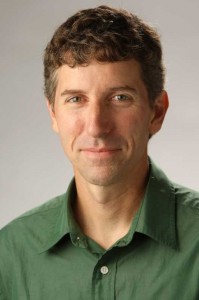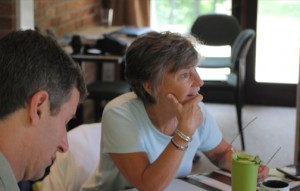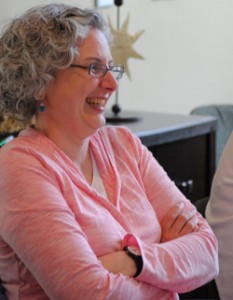2012 Cumberland Project Report
 By Joe Bandy, Assistant Director of the Center for Teaching and Affiliated Faculty in Sociology
By Joe Bandy, Assistant Director of the Center for Teaching and Affiliated Faculty in Sociology
On May 7th and 8th of 2012, American Studies and the Center for Teaching convened the second annual Cumberland Project, a series of discussions among twelve faculty about multiple dimensions of sustainability in higher education. The primary goal of the Cumberland Project is to inform and support the development of a curriculum on sustainability at Vanderbilt so that students may achieve a critical understanding of social-environmental issues and problems. A secondary goal is to further develop a community of scholars among Vanderbilt faculty that may better pursue effective inquiry and pedagogy around these issues.
The twelve participating faculty represented nine different departments, including Earth and Environmental Sciences, English, Film Studies, History, History of Art, Human and Organizational Development, Jewish Studies, Religious Studies, Theater, as well as the Ingram Commons. In the two years of the Cumberland Project, the twenty-four participants represent sixteen different departments.
 The discussions focused on four main areas:
The discussions focused on four main areas:
-
Teaching Sustainability
-
Connecting to Place
-
Interdisciplinarity
-
Teaching as Storytelling
Within these areas, the participants had group discussions facilitated by Teresa Goddu (American Studies/English) and Joe Bandy (Center for Teaching/Sociology). They also heard from various presentations by resource faculty, including Vanderbilt’s Beth Conklin (Anthropology) on teaching social dimensions of sustainability, Steve Baskauf (Biological Sciences) on ecological educational opportunities on Vanderbilt’s campus, Dana Nelson (English) and John Ayers (Earth & Environmental Sciences) on the promise of interdisciplinary and team teaching, and Amanda Little (English) on teaching about environmental problems through storytelling.
In addition, they heard presentations from Vanderbilt student, Sommers Kline (’13), on student interest in a curriculum on environmental and sustainability studies, and from the Director of Vanderbilt’s Sustainability and Environmental Management Office, Andrea George, on opportunities to incorporate campus sustainability issues into courses.
The two days also included time for individual and group reflection, as well as moments of experiential learning as the participants learned from each other about elements of the Vanderbilt campus and the Dyer Observatory.
The two days resulted in many fruitful discussions about such topics as:
- The need to deconstruct the discourse of sustainability.
- Problems of teaching social and ecological dimensions to environmental crisis, including the management of affective and ideological student responses to challenging issues.
- The many unique and complementary contributions our disciplines make to the study of sustainability, and thus the need to teach about environmental issues through interdisciplinary pedagogies and team teaching.
- The high impact pedagogies of experiential and community-based learning, and their challenges.
- The ways that environmental or sustainability education can be enhanced by connecting students to a sense of place, whether it be the campus, Nashville, or the other natural and social settings throughout the state or region.
- Ways of engaging students and teaching effectively through environmental story telling.
- The possibilities of developing learning communities across departments and classes as a method of teaching students to think critically, problem solve, and learn in interdisciplinary ways about environmental issues.
- Next steps for creating a more sustainable Vanderbilt by building on existing resources and further institutionalizing critical thinking about sustainability
In their evaluation of the project, the participants often stated how much they enjoyed the opportunities that they had to meet faculty from other departments and develop a community of practice around teaching sustainability. Read this guest CFT blog post by Jim Fraser (Human and Organizational Development) where he talks about his experiences with the Cumberland Project.
Indeed, the 2012 participants committed to various follow-up activities:
- Developing courses with units or projects on sustainability
- Embracing more interdisciplinary and experiential forms of teaching
- Building community with one another through continued collaboration
- Developing learning communities across disciplines and courses
- Further discussing sustainability education through a Cumberland Project Working Group that will meet regularly in 2012-13
- Incorporating sustainability into other areas of campus life
- Helping Cumberland Project facilitators and participants develop further resources for effective sustainability education
The 2012 Cumberland Project was an inspiring two days that ended with a great promise of growth and development of sustainability education at Vanderbilt. We look forward to facilitating this development over the following year and planning an equally stimulating and reflective experience for participants in 2013.


Leave a Response